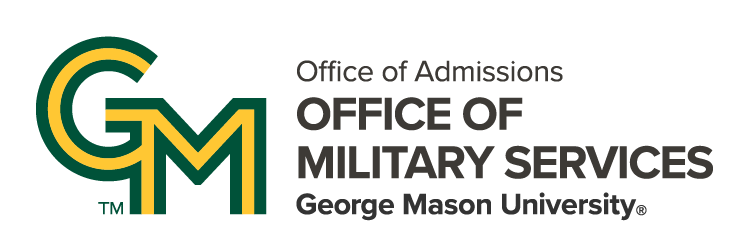By Michele McDonald
George Mason University won a nearly $8 million, five-year contract to prepare the next wave of military doctors for medical school.

Students in the first year of Mason’s two-year, pre-med boot camp take classes in biology, chemistry, physics and calculus, and prepare for the Medical College Admission Test. Photo by Creative Services.
Active military men and women will go through George Mason’s rigorous two-year pre-med boot camp on their way to medical school. Five fresh recruits start classes this fall.
“There’s a shortage of military doctors,” explains Donna Fox, associate dean of student affairs and special programs in the College of Science. “The military lifestyle is very unique. I come from a military background so I understand some of their challenges and concerns.”
Mason’s focus on life sciences and its personal approach to teaching helped the university land this key contract called the Enlisted to Medical Degree Preparatory Program, says Fox, who spent three years hoping to get a chance to bid on the contract and who will teach biology to the service members. The contract is with the Uniformed Services University of Health Sciences, a federally authorized medical school.
The program will be a life-changer for senior airman Matt Little when he starts classes in August.
“I want to be a doctor because I want to help our military members in their time of need,” says Little, who hails from Spokane, Wash., and has been in the U.S. Air Force for four years. “I spent three years as a firefighter/emergency medical technician before I joined the military, and I found a sense of fulfillment in being there for people during their worst days and being able to offer a helping hand. This program gives me the opportunity to continue that service on another level—supporting our nation’s heroes and their families.”
It will be a tight-knit group with enviably small class sizes taught by notable Mason professors. About 100 service members are expected to go through Mason’s two-year, pre-med program during the duration of the five-year contract. Five students will begin this fall with another 25 starting boot camp in fall 2015 and an additional 25 in each subsequent year. Each cohort will stay together as a group while students go through the two years of classes.
For the first year, the cohort will take classes in biology, chemistry, physics and calculus, as well as prepare for and take the Medical College Admission Test, which is needed to apply to medical school.
The second year is at the graduate level and includes classes that cover critical content in the first year of medical school. This portion is part of Mason’s GeorgeSquared program, a combined curriculum from Mason and Georgetown University’s medical school. Students will take such classes as cell and molecular physiology, medical biostatistics, cell biology and microanatomy, biomedical career pathways, human physiology, introduction to human anatomy, and physician and society.

The second year of the biomedical boot camp is part of GeorgeSquared, a partnership between Mason and Georgetown’s medical school.
After graduating, medical school is the next step. Graduates will be able to treat their fellow service men and women with an understanding usually not found outside the military.
“I think military doctors need to be more resilient than civilian doctors,” Little says.
“There are going to be some extremely trying times, whether it is in a deployed location or even back at home station. Military doctors are going to see some otherwise healthy fellow service members with severely debilitating injuries and mental issues. I’m sure it won’t be easy seeing some of the sacrifices that our members have made, but it will be worth it to be able to help those that we can.”

